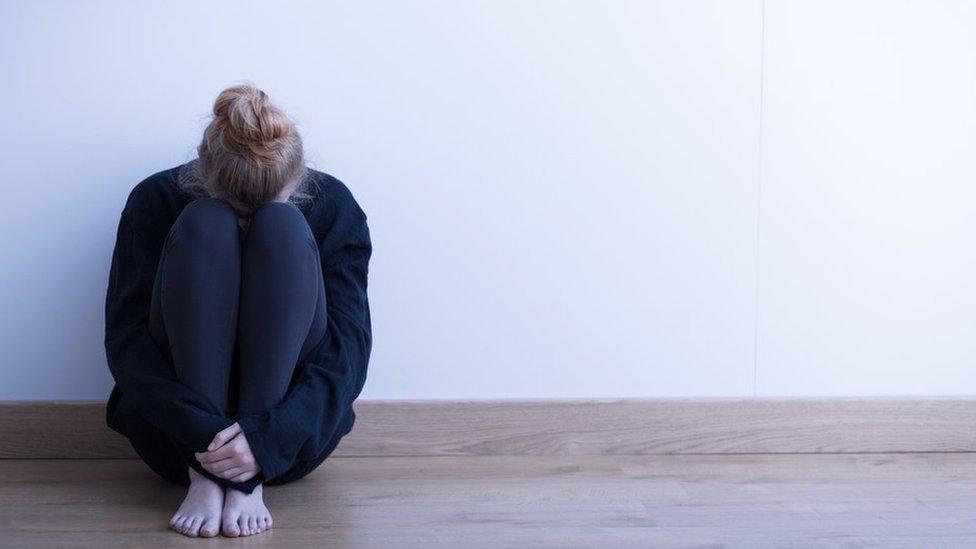'Trapped': Thousands call Childline for mental health help
- Published
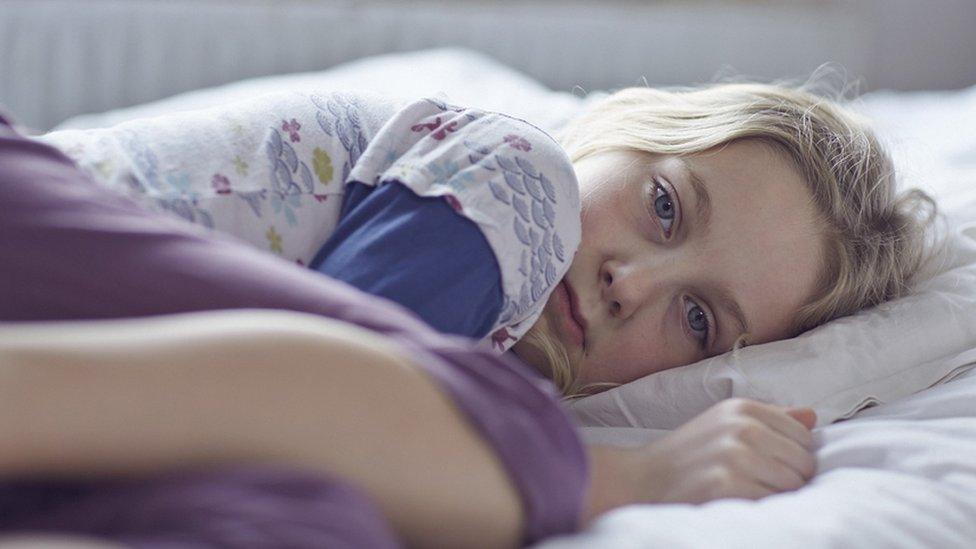
"Trapped" and feeling like a "monster" is how one young person has described their struggle with mental health.
They were just one of more than 50,000 children and young people who turned to Childline last year because of a serious mental health problem.
New data from the NSPCC shows one in six Childline counselling sessions is now about serious mental health issues.
Those aged 12 to 15 made up a third of sessions, with girls almost seven times more likely to seek help than boys.
'All I want to do is disappear'
One 16-year-old girl told Childline: "I want to know what's wrong with me.
"I have been seeing a counsellor about my mental health issues recently but they just told me to eat and sleep better and forget about the past, which didn't help me at all.
"I wish I could speak to someone who actually cared about me and I felt comfortable talking to."
Another young person said: "I'm struggling to cope with bipolar. One minute, I feel so low, like I'm trapped, and all I want to do is disappear.
"Then suddenly, I feel the complete opposite, and I'm really happy and I start thinking about everything in a really positive light.
"I feel like I push away everyone that tries to help, I tell them I hate them and blame them for everything. I just feel like I've turned into a monster."
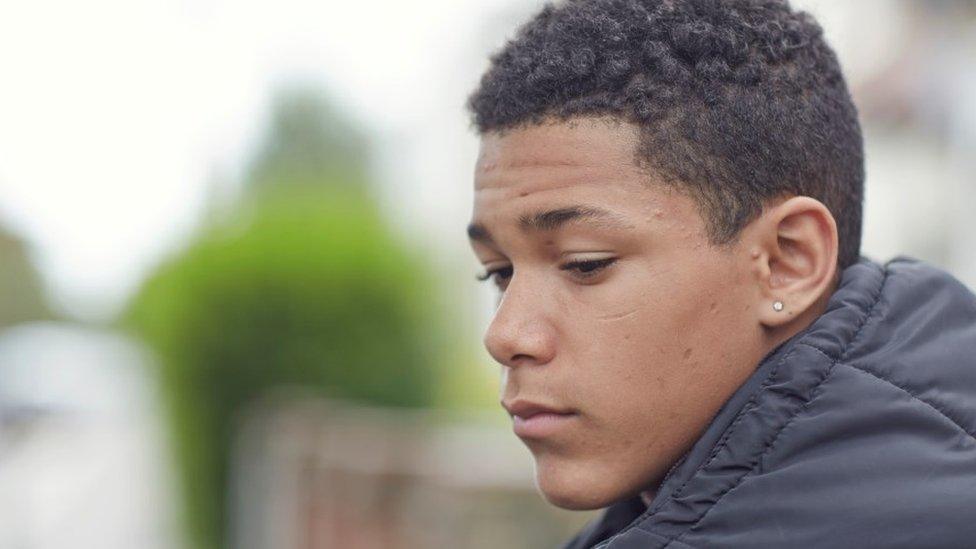
According to Childline, girls are almost seven times more likely to seek help than boys
Figures released on Monday show 50,819 children and young people received counselling for a serious mental health issue last year.
This is a rise of 8% over the past four years.
Over four years, there was a 36% rise in youngsters needing help for depression and other disorders.
In September 2016, Childline reported a record number of calls from children with suicidal thoughts.
'Get lives back on track'
Early signs of a serious mental health problem in young people include becoming withdrawn from friends and family, being tearful or irritable, sudden outbursts, and problems eating or sleeping.
Peter Wanless, chief executive of the NSPCC, said some mental health problems were a direct result of the person having previously experienced abuse and neglect.
"To ensure the next generation aren't left to deal with a mental health epidemic, there has to be a much more comprehensive network of professional support and treatment in place that is easily accessible for young people who are desperate for help to get their lives back on track," Mr Wanless added.
Dr Peter Hindley, chairman of the child and adolescent faculty of the Royal College of Psychiatrists, said the report backed up the rise in demand that psychiatrists were seeing from across the country.
"It is vital that the government thinks long-term about the level of investment needed to provide accessible, high-quality services for the most vulnerable children and young people in society," he said.
"Child and adolescent mental health services simply cannot afford to continue to be so under-funded."
'Desperately unhappy'
Childline founder Dame Esther Rantzen said children's mental health services were already "overstretched, meaning that young people aren't able to access the professional help they need".
Dame Esther said: "It's striking how many more children seem to be suffering serious mental health problems today than when we launched Childline 30 years ago.
"So many desperately unhappy children seem to be suffering suicidal thoughts, self-harming, becoming anxious and depressed, with many of them turning to Childline because no other support is available."
Dame Esther said there needed to be more emphasis on providing support for these children.
Childline offers free support and advice online, external or over the phone on 0800 1111.
- Published6 February 2017
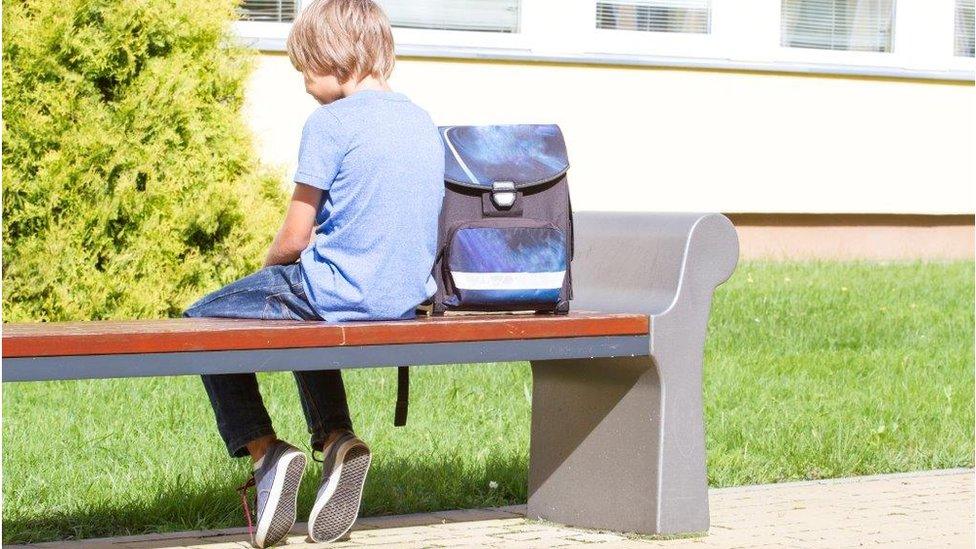
- Published1 December 2016
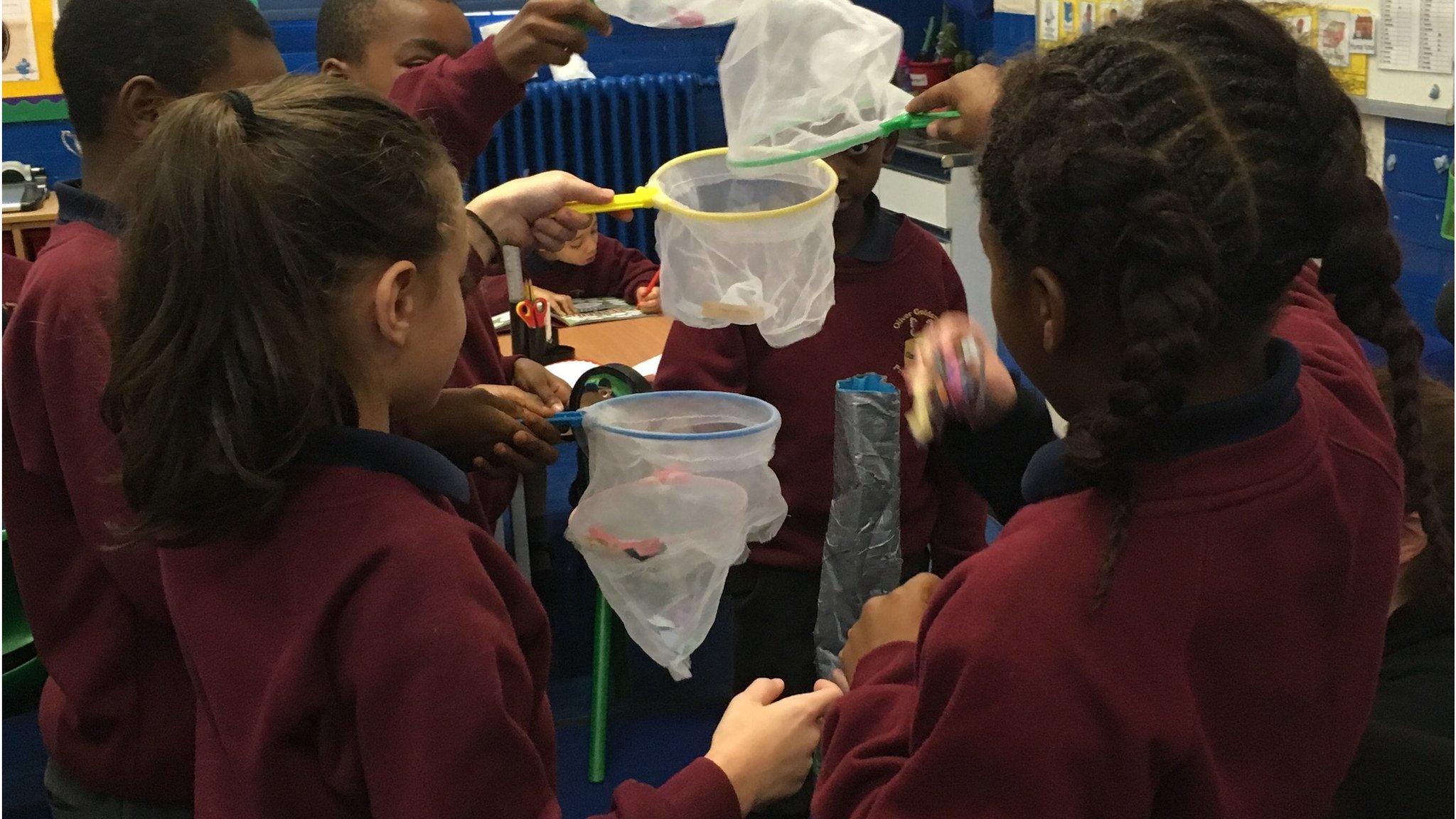
- Published15 November 2016
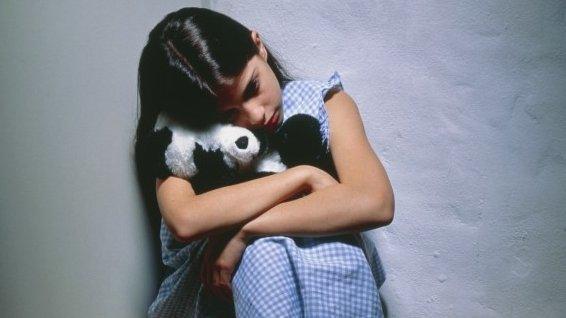
- Published18 October 2016
